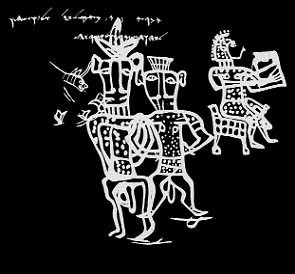Even the most minute of confrontations are to be avoided at all cost. So instead of asking someone directly if they're completing the task they're paid to do, they avoid even the whiff of confrontation by getting someone else (in this case, me) to do the work too, to make sure the job is complete. This sort of 'busy work' is only the latest example of the plague of waste of time and money rampant in my large company and most probably throughout corporate America.
In short, its wonderful to know that the value of whatever I do and will do here at work will amount to exactly gurnisht, efes. I know, I know...anything is better than the four (or was it five) layoffs I've endured since 1998. And as I'm fond of saying, its also much better than leprosy, or venereal warts, or one of those diseases once can read in detail about in Tazria-Metzora. In stark contrast, winning at least third place in the 'work that outlasts one's life' contest, let me introduce the subject of the present edition of...

...Today in the life of the Jews: Abraham Mapu was born near Kovno, Lithuania on this day in 1808. His books served as the ideological basis of the Zionist movement. Mapu introduced the first Hebrew novel in 1853. Until then, only Hebrew translations of novels from other languages were published. His masterpiece, Ahavat Tzion, was eventually translated into Yiddish, German and English. He died in Konigsberg, Prussia (now Kaliningrad, Russia) in 1867, while writing a book about Shabbtai Tzvi.

2 comments:
You should read up on Operations Research and organizational theory. A lot of what seems "useless" to a person working in an office might actually be a part of optimizing workplace efficiency. The sociology of how to get the most out of a workforce is sometimes much less intuitive than you'd think.
LOL...LT, oh how nice if were so: a worker ant as an integral part of a colony, a lone cell as part of a living organism. But alas, it isn't. It really isn't much different here than a diluted and very long episode of the office. There is an ever-present low quotient of amusement in my office of a ludicrous nature.
Post a Comment